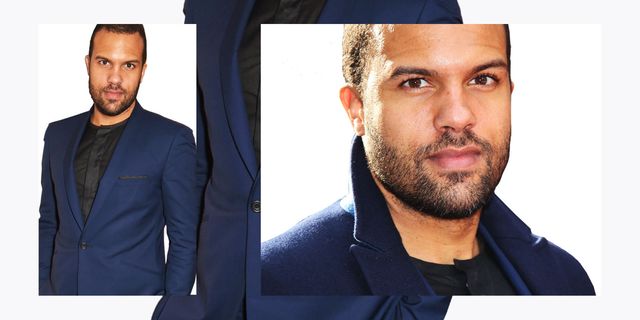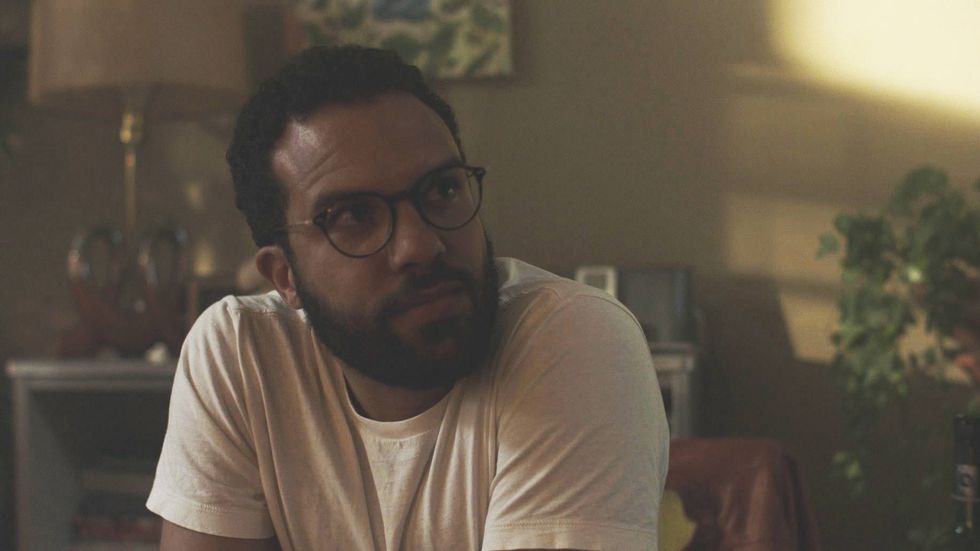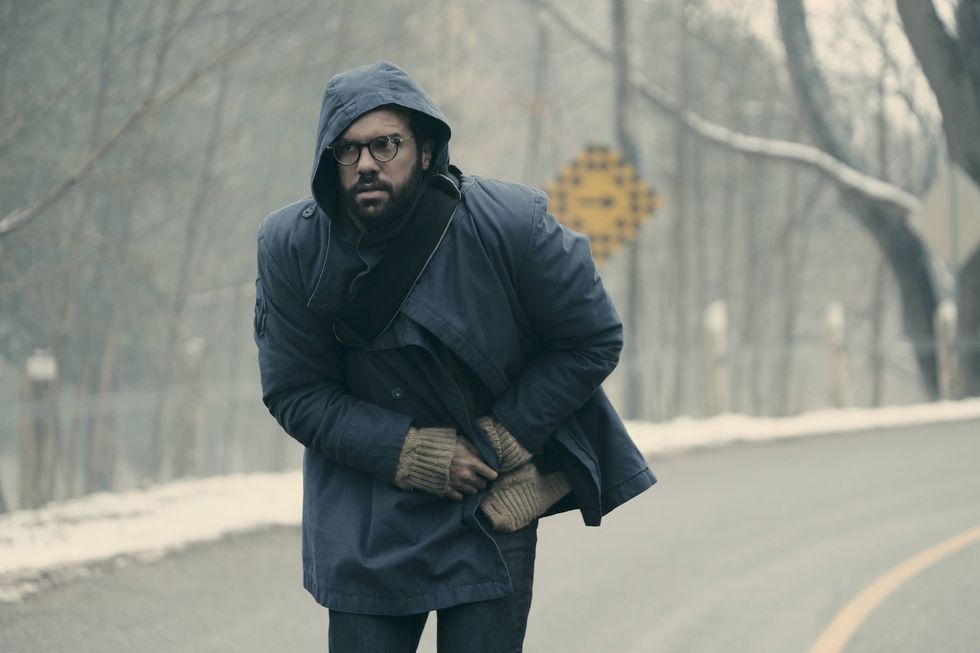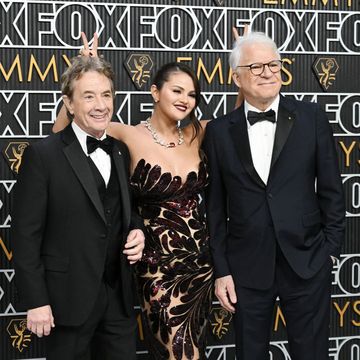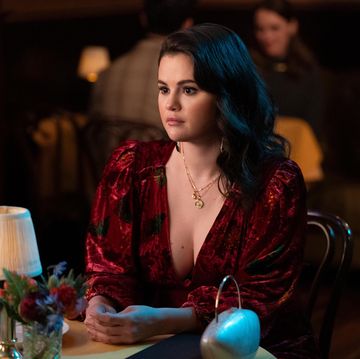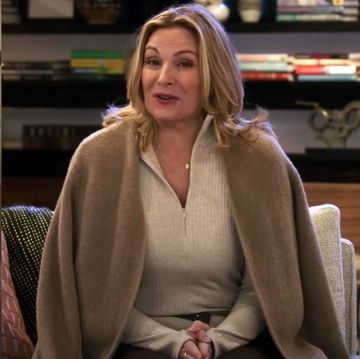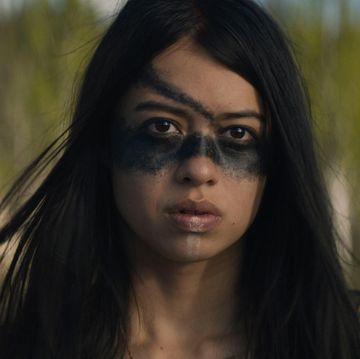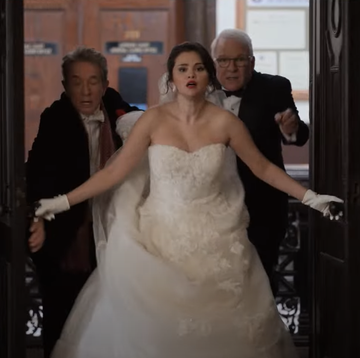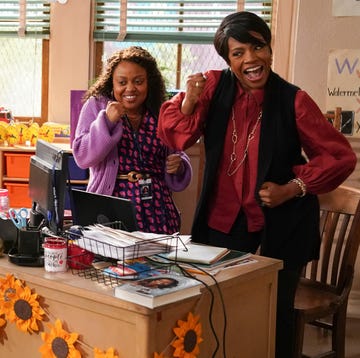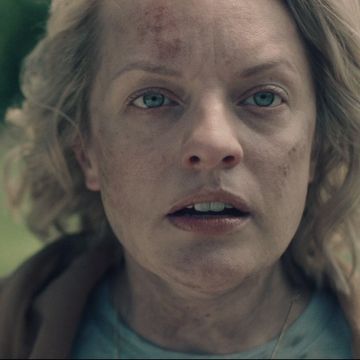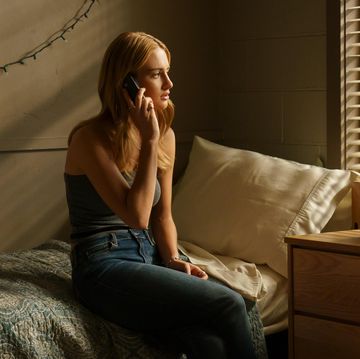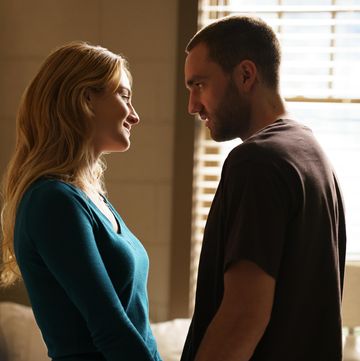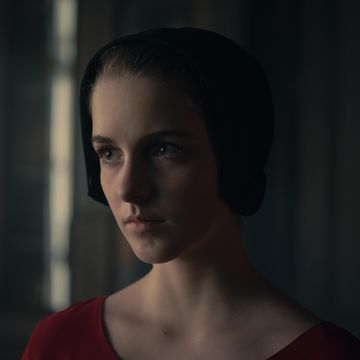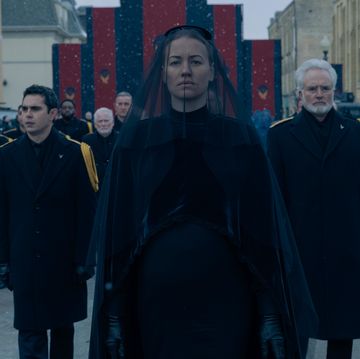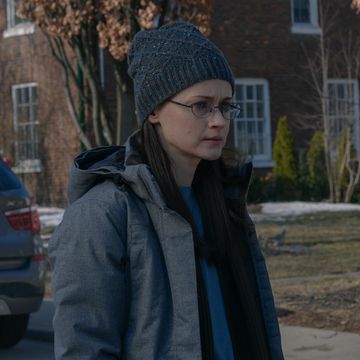The twist ending of last week's Handmaid's Tale was startling for a couple of reasons. Ever since that gunshot in the opening moments of the pilot, Luke (O-T Fagbenle) has been presumed dead, his role in the show limited to flashbacks from his wife June's (Elisabeth Moss) perspective. But the revelation that her husband is alive came as a surprise not so much because we thought he was dead, but because we hadn't given him much thought at all.
In comparison to The Handmaid's Tale's array of compelling women, its men are largely ciphers—there's the enigmatic evil of the Commander (Joseph Fiennes), the hot-yet-blank love interest Nick (Max Minghella), and the nostalgic fantasy represented by Luke. But in this week's all-Luke episode, "The Other Side," his story becomes critical, giving us a glimpse into the world beyond Gilead for the first time. As it turns out, Luke was shot, but he survived both that wound and an ambulance crash, and escaped across the border to Canada just as he and June planned.
We spoke to Fagbenle about his hopes for season two, The Handmaid's Tale as resistance art, and why it can be hard for men to talk about feminism.
Fagbenle had some trepidation about a standalone episode focused solely on Luke.
"I was concerned, because the show is set up in such an intimate, subtle way, and episode seven just rolls in like, Bang! Crash! Car chase! People on the run! But what was great was that I'd just finished playing a character [English] who was very competent at violence, whereas Luke is just…a guy. He's your dad, he's your uncle, he wears a cardigan. I think a character being thrown into this situation and not being competent is very relatable, because we live in such a digital, hands-off world. If things really did hit the fan as they do in The Handmaid's Tale, how would the average person be able to respond?"
The show tells us very little about Luke's life before he met June, but Fagbenle has his own ideas.
"I sometimes feel like there are secrets I have between myself and my character, and that's how I feel about [Luke's backstory]. But I can say that sometimes in life, the lucky among us just fall in love so profoundly that there's not much you can do, except get out of the way. I've experienced that in my life, and I think that's what happened to Luke with June. He just fell in love, regardless of what tricky situation he might have been in. From the moment Elisabeth and I met, we got on so well—we were immediately cracking inappropriate jokes, so [developing a chemistry] was easy."
In one of Luke's most telling scenes, when women's rights begin to disappear, he promises June he will take care of her. Moira (Samira Wiley) accuses him of being patronizing, saying, "She isn't your property."
"I love that scene because it shows that language is complex. Luke meant well with what he said, and lots of people say lots of things and mean well, but it's incumbent upon us to be educated about the implications of certain phrasing. We live in a world of historical context, and that scene is an examination for me of how men and women can hear different things from the same words. It's hard for men sometimes to talk about feminism, just as it's hard for people who aren't from ethnic minorities to talk about racial prejudice. It's a difficult conversation to have, but that doesn't mean we shouldn't have it."
When the show began filming last fall, it was speculative fiction about a worst-case-scenario future. Now, it's resistance art.
"This is the most feminist show I've ever seen, and the way audiences are taking to it is really affirming, especially when there's so much news that is deeply disheartening. There was a sense as we started filming [in September of 2016] of, 'Oh God, imagine if the nightmare scenario came to pass,' and then the election happened. Now, no matter what side of the aisle you're on, do we want to live in a society where you can have a group of men standing in a room passing laws about women's health? Are we okay living with a leader who, "locker room talk" or not, made severely misogynistic statements? Whether you're a Republican or a Democrat, are you okay with that? And if not, then you have to make noise about that, and i think The Handmaid's Tale is making noise."
The book implies that Luke quietly enjoys June's rights being stripped away. "He doesn't mind this," June notes to herself. "Maybe he even likes it. We are not each other's, anymore. I am his."
"I don't think that's the case with our incarnation of Luke, but I do think it's interesting how reluctant we can be to both acknowledge and let go of our privileges. Whether it's male privilege, white privilege, Western privilege—we like it when it works in our favor, and we're generally inclined not to accept that [privilege] exists, or to let it go. I think what we forget is that everybody loses when we keep unnecessary privilege. The cost to society overall is much greater."
While 'The Handmaid's Tale' getting a second season has raised some eyebrows, for Fagbenle it's a no-brainer to explore more of this world.
"Although the series is faithful to the book in many ways, I think the idea is that the book is a springboard for a new piece of art. We've seen from shows like Game of Thrones that the book can become a seed, which you plant in the ground of great TV creators and it can sprout out into a big tree. As a fan, I'm so excited—I want to know what happens at the colonies! I want to know what happens to June afterwards! It's a heartbreaker in the book when you suddenly skip to 100 years on, so I couldn't be more excited to explore this world further."
